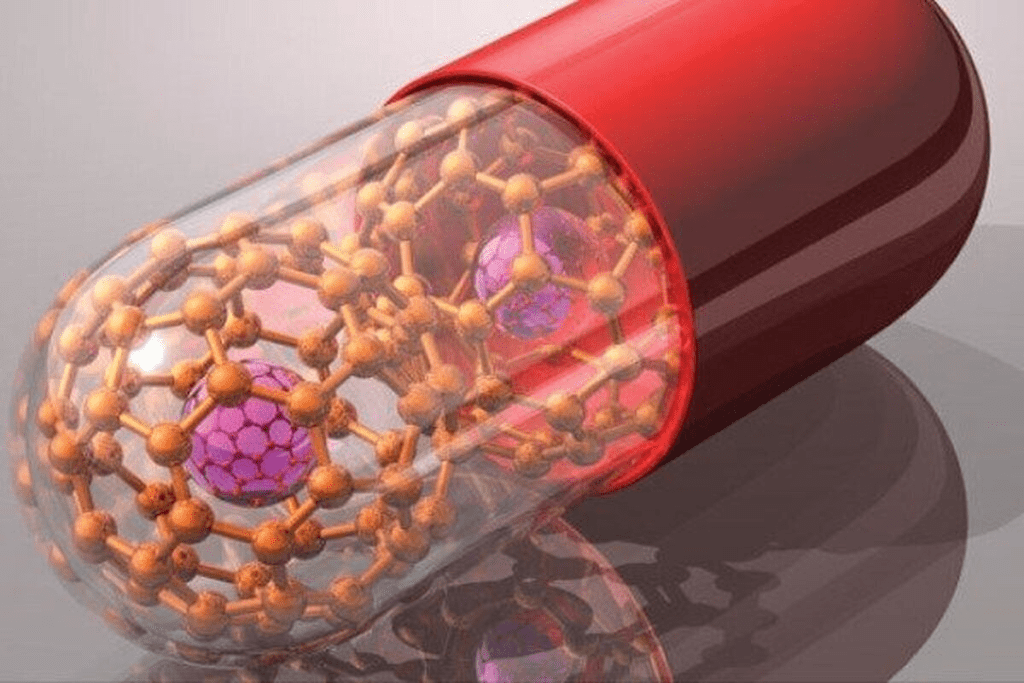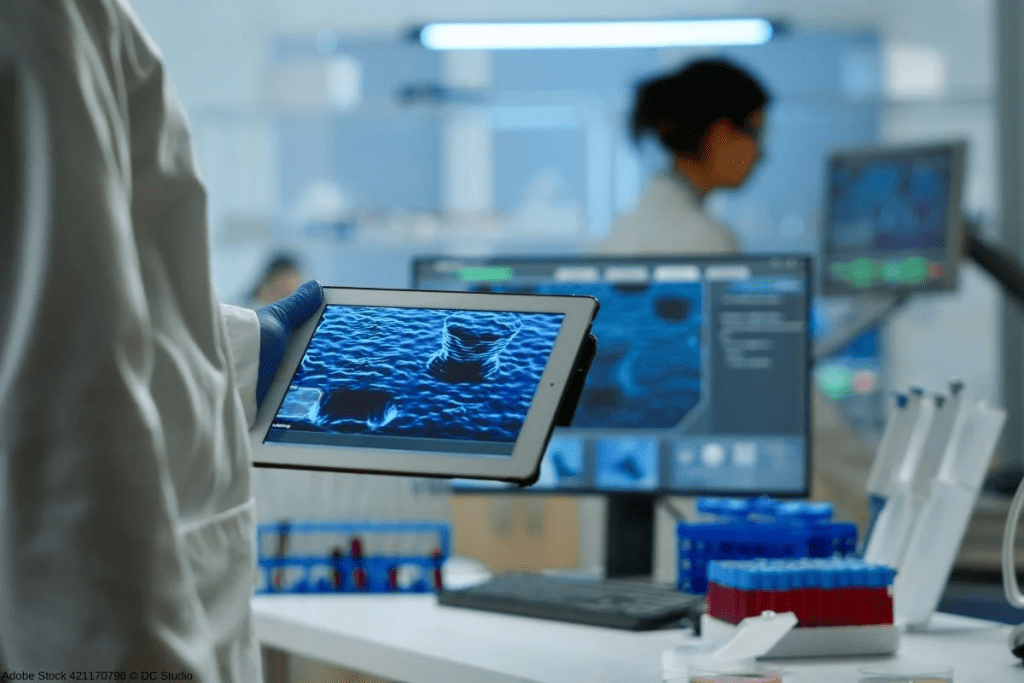Last Updated on November 13, 2025 by
Healthcare is moving forward, and the old way of treating everyone the same isn’t working anymore. Precision medicine is a big step forward. It creates treatment plans that fit each person’s unique genetic, environmental, and lifestyle needs.

This new method is showing great promise in treating complex diseases like cancer. By making treatments fit each patient’s specific needs, we hope to make treatments work better and cause fewer side effects.
The global precision medicine market was worth $83.4 billion in 2022. It’s expected to hit $254 billion by 2032. This shows how important precision medicine is becoming in healthcare today.
Precision medicine is changing healthcare by giving each patient a treatment plan that fits them. This is different from the old way, where treatments didn’t always work and could cause harm.
The old way of treating patients was based on what works for most people. But it doesn’t consider what makes each person different. This means many patients don’t get better with the first treatment they try.
Precision medicine offers individualized treatment plans that are made just for each patient. It looks at genetics, environment, and lifestyle to create better treatments. This way, treatments work better and cause fewer side effects.
Genetics, environment, and lifestyle all affect how well treatments work. By considering these, doctors can make personalized treatment plans that are more effective. For example, genetic tests can show which patients will get the most benefit from certain drugs.
In summary, moving from one-size-fits-all to personalized healthcare is a big step forward. Precision medicine helps patients get better, saves money, and makes healthcare better overall.
Precision medicine uses genome sequencing and other advanced tests. This helps doctors make quick and smart choices. It’s changed how we diagnose, making it better in urgent care.

One big plus of precision medicine is how fast it can diagnose. Old methods took days or weeks. But new tech like genome sequencing can give answers in hours. This means doctors can start treating patients sooner, helping them get better faster.
In critical care, genome sequencing is key. It helps find the cause of complex or unknown conditions. This leads to better treatment plans, better health, and lower costs.
“The use of genome sequencing in critical care settings has the power to change how we diagnose and treat. It gives us quick and accurate results, leading to better health and saving lives.”
Critical Care Specialist says:
Precision medicine also helps find diseases early. By looking at genetic data, doctors can spot who’s at risk. This lets them act early, preventing some diseases.
Early detection’s main benefits are:
In short, precision medicine is changing healthcare. It uses new tools and genome sequencing to help doctors make quick, smart choices. This leads to better health and saves lives.
Precision medicine is changing healthcare. It offers treatments that work better and have fewer side effects. By knowing what makes each person different, we can make treatments that really help.
Pharmacogenomics studies how genes affect how we react to drugs. It shows that making drugs fit each person’s genes can make treatments better and safer. For example, genetic tests can tell us how to adjust drug doses for better results.
Research has made big strides in this area. A study in Frontiers in Medicine shows how important pharmacogenomics is. It helps doctors make better treatment plans for each patient.
One big plus of precision medicine is making dosages just right for each person. By looking at a person’s genes, doctors can find the best dose. This is really helpful for people at risk of bad reactions or who need exact dosages, like those with cancer or mental health issues.
Precision medicine has made a big difference in real life. For example, in cancer, targeted treatments have changed how we fight certain cancers. They focus on the cancer’s specific genetic flaws. In psychiatry, genetic testing helps find the right medication for each patient, making treatments more effective and safer.
These stories show how precision medicine is changing healthcare. It’s making treatments better and safer. As we keep improving, we’ll see even better results for patients in many areas of medicine.
Precision medicine is changing how we fight cancer and manage chronic diseases. It tailors treatments to each patient, leading to better results.
In oncology, we’re seeing a big change. Targeted therapies aim at cancer cells, sparing healthy tissues. This method is showing great promise in making treatments more effective and less harsh.
Targeted therapies are key in cancer treatment. They focus on specific genetic changes or biomarkers. This makes treatments more precise.

The cell and gene therapy market is growing fast. It’s expected to jump from $25.03 billion in 2025 to $117.46 billion by 2034. This shows how important these therapies are for genetic disorders and cancer.
These therapies give hope to patients with no other options. They tackle diseases at their genetic source. This could lead to more lasting and possibly curative treatments.
Precision medicine is making big strides in cancer, but it’s also being used for other diseases. It’s versatile, working for various conditions.
The use of precision medicine is changing healthcare. It brings big economic wins and makes healthcare systems work better. Tailored medical care is key in today’s complex healthcare world.
The precision medicine market is set to grow from $83.4 billion in 2022 to $254 billion by 2032. This shows big economic chances in this area. Growth comes from better genetic sequencing, data analysis, and custom treatments.
Investing in precision medicine boosts the economy and drives healthcare innovation. As the market grows, we’ll see new tech and treatments. This will make patient care even better.
Precision medicine offers treatments that work better. This means less money spent on treatments that don’t work and fewer complications. Custom meds and plans based on genetics cut down on bad reactions and costly fixes.
Also, precision medicine helps catch diseases early and prevent them. This lightens the load on healthcare systems. It saves money and improves health outcomes for patients.
Precision medicine helps use healthcare resources better. It focuses on high-risk patients and custom treatments. This makes care more efficient and effective.
The data-based nature of precision medicine leads to smarter decisions. Resources are used wisely, leading to better health results and a sustainable system.
Precision medicine is changing healthcare by giving personalized treatments. This leads to better patient outcomes. As we move forward, it will likely become a key part of healthcare.
We’re moving away from the old one-size-fits-all approach. Precision medicine lets healthcare providers and patients work together. This way, they can create treatment plans that really help and save money.
The future of precision medicine looks bright. It could help a lot in cancer care and managing chronic diseases. As research and technology get better, we’ll see more treatments that fit each person’s needs.
By adopting precision medicine, we can change healthcare for the better. It’s important to keep up with the latest in precision medicine as it grows.
Precision medicine is a way to tailor treatments to fit each person’s unique needs. It considers their genes, environment, and lifestyle to improve health outcomes.
Precision medicine is different because it focuses on individual treatments. It moves away from the old “one-size-fits-all” approach. Instead, it looks at what makes each person unique.
These factors are key in precision medicine. They help doctors create treatments that work best for each patient. This approach improves treatment results and reduces side effects.
Precision medicine has changed how we diagnose diseases. It uses genome sequencing and other tools to make diagnoses faster and more accurate. This cuts down on the time it takes to get a diagnosis.
Precision medicine has changed cancer treatment for the better. It uses targeted therapies that focus on cancer cells, reducing harm to healthy tissues. This leads to better outcomes for cancer patients.
Precision medicine reduces side effects by tailoring treatments to each person’s genetic makeup. It helps doctors understand how genetics affects addiction responses. This leads to more effective and safer treatments.
Precision medicine saves money by reducing costs from ineffective treatments and complications. It also helps healthcare systems use resources more efficiently by focusing on targeted interventions and prevention.
The future of precision medicine looks bright. It’s expected to grow beyond cancer to treat other diseases like heart conditions and neurological disorders. It will become a key part of healthcare.
Precision medicine helps manage chronic diseases by creating targeted therapies and personalized plans. This approach improves treatment results and reduces side effects.
Cell and gene therapy have shown great promise in treating diseases, including genetic disorders and cancer. They are expected to play a big role in advancing precision medicine.
Subscribe to our e-newsletter to stay informed about the latest innovations in the world of health and exclusive offers!